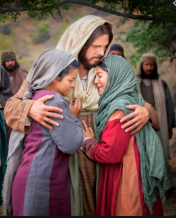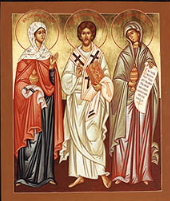
Today the Word of God of this Holy Monday (April 6, 2020) sends us a double invitation: to enter the “house of perfume” and to contemplate—drawing practical consequences—the protagonists of the most important “Penultimate Supper” of Jesus: the Bethany dinner. It anticipates the “Last Supper”: a woman, Mary, anoints the feet of Jesus, another woman, Martha, serves the Table. The sinister figure of Judas, who despises the gesture of Mary, is also anticipated; and that of Jesus of “do this in memory of me”, who anticipates saying that “the memory of the gesture of the woman who anointed him for his burial will be made”. Let us not read this story with mere curiosity. Let’s discover what wisdom it contains. May the Holy Spirit—under whose inspiration this text was written and transmitted—move us to understand the message. (Trad. al inglés: Alberto Rossa, cmf – desde Hong Kong)
The connection of the last two Suppers of Jesus
The supper at Bethany appears in the Gospel of John as the penultimate Supper of Jesus! In it the protagonists correspond to two disciples: Martha serves the Table and Mary washes Jesus’ feet with perfume and dries them with her hair. Judas Iscariot has a negative role, complaining about the expense and does not understand the love that Mary expresses in her gift to Jesus. These anticipate the gestures that Jesus will perform at the Last Supper: serve and wash the feet. Judas also anticipates his betrayal. How far does our service and dedication to Jesus go?
We can successively identify with each of the characters from the penultimate Supper of Bethany: Martha, Mary, Judas Iscariot and Jesús:
- Martha questions us about our capacity of service, of diakonia; the one who recognized Jesus as the Son of God, who had to come into the world, is also the one who is diluted in service to Jesus and his community.
- Mary, the one who had had a tense relationship with Jesus because of Lazarus ‘death, is now the one who anoints Jesus’ body with a very expensive perfume for his burial. The house was flooded with perfume, like a garden of fragrant flowers, like a temple with the smell of incense.
- Judas complains about the waste and corrupts the environment. Judas thinks that the dedication of Mary to Jesus is exaggerated: he calculates everything in economic terms and obviously considers it an unnecessary expense in that case, but absolutely necessary to solve other problems. The evangelist cannot be silent in the face of this reaction and immediately comments that he was a miser, a thief. The opposite of a person who gives himself up is a person who steals!
- Jesus is at the centre of the scene as an interpreter: Mary has anointed—consecrated—her Body in advance for the great sacrifice of the Cross. And that should always be remembered! It should be the reason for a permanent “anamnesis” – reminiscence. And, referring to the poor, Jesus identifies himself with them, but he also wants this gesture to be repeated with all the poor “who will always be with us”, as an extension of what was done with him.
And … what consequences?
We often put liturgy and charity, the option for Jesus and the option for the poor as an alternative. The Second Vatican Council presented the liturgy as “source and culmination” of the Church’s Mission and its evangelization, whose preferred recipients are the poor. The Eucharistic Table is “source” and is “summit”. The Eucharist concludes with an “ite missa est”: that is, a missionary sending. The cordial and passionate attention to the Body of Jesus and his Word is not wasted time: it is the source that enables us to announce the Good News of the Kingdom to the poorest. But also, the summit, as it was for Jesus. Almost at the time of completing his mission here on earth, Jesus brings to the Supper all that he has accomplished for humanity. The two women who serve him recognize him. From the Eucharist comes charity towards our poorest sisters and brothers (“do the same”). In the Eucharist our evangelizing charity becomes a gift and offering to Jesus.
Even if I give all my goods to the poor, if I don’t have charity…
1 Cor 13
Prayer to the Holy Spirit of Jesus

Jesus, how many times do we look for loopholes, even the apparently good ones, to un-centre ourselves from you! May we learn from your two disciples to serve and praise you, to have our eyes on you, because from you our life will be a great gift for all our brothers and sisters, especially for the poorest and neediest. Do not allow us to instrumentalize you, rather make us be living instruments in your life-giving work of the world. May your Holy Spirit, who makes you our contemporary, make us understand the importance of the ministerial presence of women within the Church and open those paths that until now were closed to them.
Impactos: 865
